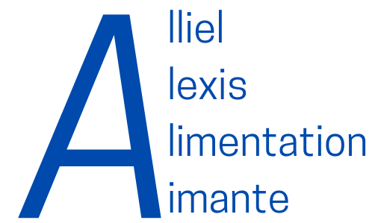Understanding Your Monthly Battle
PMDD and Food Compulsions: When Hormones Hijack Your Eating
Living with premenstrual dysphoric disorder (PMDD) as an expatriate in Paris presents unique challenges that extend far beyond the typical struggles of managing this complex hormonal condition. PMDD affects 3-8% of menstruating women and increases your risk of bulimia nervosa by seven times, making it a serious concern that demands specialized attention—particularly when you're navigating a foreign healthcare system while battling monthly food compulsions that feel completely out of your control.
The intersection of PMDD and eating disorders is more common than you might think, with 16.6% of PMDD sufferers experiencing eating disorders compared to just 2.3% of the general population. This isn't about willpower or moral failing—it's about brain chemistry, hormone fluctuations, and a medical condition that deserves proper recognition and treatment. For expatriates in Paris dealing with isolation, cultural adjustment stress, and limited access to English-speaking specialists, these challenges can feel overwhelming. Understanding the biological mechanisms behind your monthly food struggles is the first step toward reclaiming control and developing a healthier relationship with both your body and food.
Your brain on PMDD: The biological reality behind food compulsions
PMDD fundamentally alters your brain chemistry in ways that directly impact appetite and food behavior. During the luteal phase of your menstrual cycle—typically the two weeks before menstruation—estrogen and progesterone levels fluctuate dramatically. In women with PMDD, this hormonal dance triggers a cascade of neurobiological changes that affect the serotonin system, your brain's primary mood and appetite regulator.
Research shows that serotonin deficiency during the luteal phase directly contributes to carbohydrate cravings and increased appetite. Your brain literally craves high-carbohydrate foods as an attempt to boost serotonin levels naturally. This explains why you might find yourself desperately seeking chocolate, bread, or pastries during your pre-menstrual weeks—behaviors that have nothing to do with lack of self-control and everything to do with your brain's attempt to self-medicate.
The appetite-regulating hormones leptin and ghrelin also become dysregulated in PMDD. Leptin concentrations increase during the luteal phase, while disrupted sleep patterns—another PMDD symptom—elevate ghrelin levels, creating the perfect storm for uncontrollable hunger and specific cravings for high-fat, high-carbohydrate foods. Understanding this biological reality can help you approach your eating patterns with compassion rather than self-criticism.
For expatriates in Paris, these biological changes can feel particularly isolating when you don't have your usual support systems or familiar comfort foods readily available. The stress of cultural adaptation can further disrupt your hormonal balance, potentially intensifying PMDD symptoms and associated food behaviors.
Recognizing PMDD-related eating patterns in your Paris life
PMDD-related eating behaviors follow predictable patterns that typically intensify during the luteal phase and resolve within days of menstruation beginning. Common patterns include marked increases in appetite, "insatiable hunger" despite adequate food intake, specific cravings for chocolate and high-carbohydrate foods, emotional eating episodes, and binge eating behaviors that feel completely uncontrollable.
Living in Paris as an expatriate adds unique layers to these challenges. You might find yourself gravitating toward familiar comfort foods from home during difficult PMDD days, leading to expensive shopping trips to specialized international markets or ordering costly delivery from expat-friendly restaurants. The isolation that many expatriates experience can intensify emotional eating patterns, particularly when you're dealing with language barriers that make it difficult to express your needs or seek support.
The French food culture, with its emphasis on meal timing and social eating, can also clash with PMDD-related eating patterns. You might feel pressure to maintain normal social eating habits even when your hormones are driving intense cravings or appetite changes. This cultural pressure can create additional shame and anxiety around your eating behaviors, potentially worsening the cycle of restriction and compulsion.
It's crucial to track your symptoms in relation to your menstrual cycle to identify clear patterns. Use smartphone apps or a simple calendar to note mood changes, appetite fluctuations, and specific food cravings. This documentation will be invaluable when working with healthcare providers in France, particularly when language barriers might make it challenging to communicate the nuanced relationship between your hormones and eating behaviors.
Treatment approaches: What actually works for PMDD and food issues
Selective serotonin reuptake inhibitors (SSRIs) represent the gold standard treatment for PMDD and show remarkable effectiveness for both mood and appetite symptoms. Unlike depression treatment, SSRIs for PMDD often work within days rather than weeks, and can be dosed intermittently during the luteal phase only. Fluoxetine, sertraline, and paroxetine are FDA-approved specifically for PMDD, with 60-90% of patients showing significant improvement in both mood and eating behaviors.
Cognitive behavioral therapy (CBT) is now recognized as first-line treatment alongside medication, particularly effective for addressing the eating behaviors that accompany PMDD. CBT helps you develop coping strategies for managing cravings, recognizing thought patterns that contribute to emotional eating, and building skills for navigating the monthly challenges of PMDD without resorting to restrictive or compulsive eating behaviors.
For expatriates in Paris, accessing these treatments requires navigating the French healthcare system effectively. Start by booking an appointment through Doctolib with an English-speaking gynecologist or psychiatrist who understands PMDD. Be prepared to advocate for yourself—PMDD is still underrecognized in many healthcare systems, including France's. Bring documentation of your symptoms, including any eating behavior tracking you've done.
Lifestyle modifications can significantly support medical and psychological treatments. Regular aerobic exercise for at least 30 minutes increases serotonin naturally and can reduce PMDD symptoms. Focus on complex carbohydrates during symptomatic phases rather than fighting cravings entirely—this aligns with your brain's biological needs. Prioritize sleep hygiene, as poor sleep worsens both PMDD symptoms and eating behaviors by elevating ghrelin and reducing leptin effectiveness.
Navigating PMDD treatment as an expatriate in specialized Paris clinics
Finding specialized care for PMDD and associated eating behaviors in Paris requires strategic navigation of both public and private healthcare systems. Our practice, with offices in the 6th and 20th arrondissements as well as Le Raincy, specializes in hormonal eating disorders and understands the unique challenges faced by English-speaking expatriates dealing with PMDD.
When working with French healthcare providers, be prepared to educate them about PMDD if necessary. Bring printed information in French about PMDD diagnostic criteria and treatment options. The term "trouble dysphorique prémenstruel" is the French translation, though many providers may be more familiar with "syndrome prémenstruel sévère." Don't hesitate to request an interpreter if language barriers are preventing clear communication about your symptoms.
Insurance considerations for expatriates are crucial when seeking PMDD treatment. French social security (Sécurité Sociale) covers basic medical consultations and many psychiatric medications, but specialized eating disorder treatment may require private insurance or out-of-pocket payment. Many expatriate insurance plans cover mental health treatment, so verify your coverage for both medical and psychological interventions.
Building a multidisciplinary team is essential for comprehensive PMDD treatment. This typically includes a gynecologist or psychiatrist for medical management, a specialized dietitian for eating behavior support, and potentially a psychologist for CBT. In Paris, many English-speaking professionals work collaboratively to provide integrated care for expatriates dealing with complex conditions like PMDD.
Remember that effective PMDD treatment takes time and often requires adjusting approaches based on your individual response. Be patient with the process and maintain detailed records of your symptoms and treatment responses. This documentation helps your healthcare team make informed decisions about adjusting medications or therapeutic approaches.
Conclusion
PMDD and its associated eating behaviors represent a serious medical condition that deserves professional attention and compassionate treatment. As an expatriate in Paris, you don't have to navigate this challenge alone or accept monthly food compulsions as an inevitable part of your cycle. Effective treatments exist, and with the right support team, you can develop a healthier relationship with both your hormones and your food.
The key lies in understanding that your food struggles during PMDD episodes are not failures of willpower but biological responses to hormonal changes that can be effectively managed with appropriate medical and psychological interventions. Whether through our specialized practice or other qualified providers in Paris, support is available to help you reclaim control over your monthly cycles and develop sustainable strategies for managing PMDD without compromising your relationship with food.
Living and eating are two sides of the same coin. Lighten your relationship with food and free yourself from what doesn't serve you!
📚 Hormonal Health: Explore links with PCOS and endometriosis. Life transitions like menopause are also relevant.
Sources and References
American Academy of Family Physicians - Diagnosis and Treatment of Premenstrual Dysphoric Disorder
National Center for Biotechnology Information (NCBI) - Premenstrual Dysphoric Disorder StatPearls
Office on Women's Health - Premenstrual Dysphoric Disorder (PMDD)
Journal of Eating Disorders - Eating disorders in premenstrual dysphoric disorder: a neuroendocrinological pathway
Johns Hopkins Medicine - Premenstrual Dysphoric Disorder (PMDD)
Cleveland Clinic - Premenstrual Dysphoric Disorder (PMDD): Causes & Treatment


Vivre et manger sont les deux faces de la même pièce
Lighten your relationship with food and free yourself from what hinders you!
+33 6 22 41 55 21
© 2024. All rights reserved.
RPPS : 10007258733
N° ADELI : 75 95 0878 1
